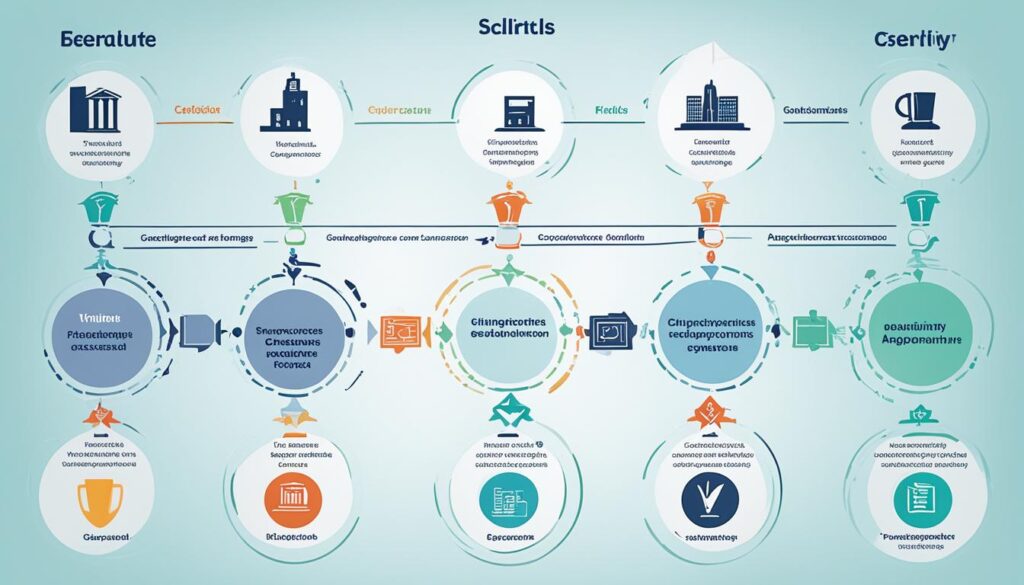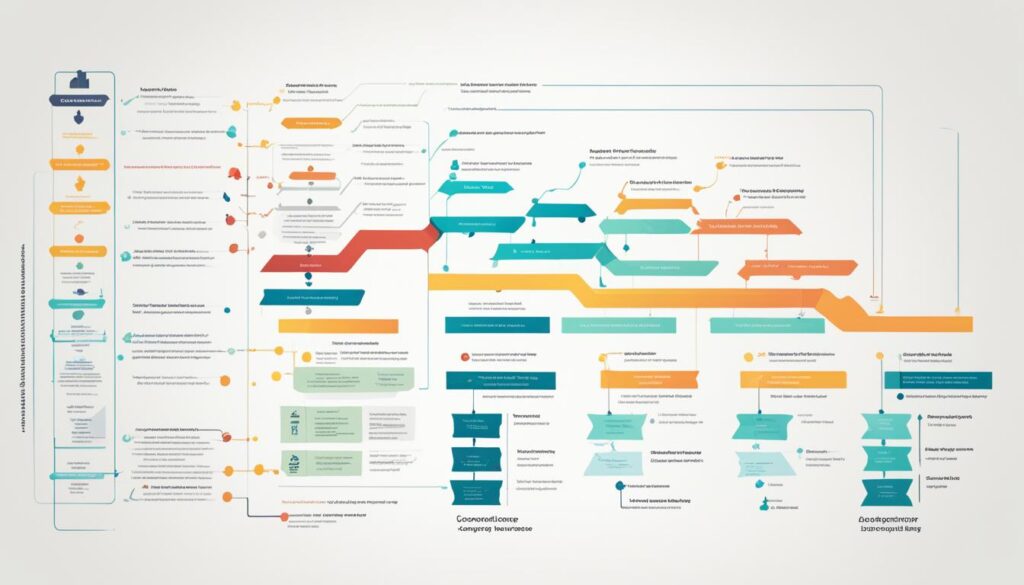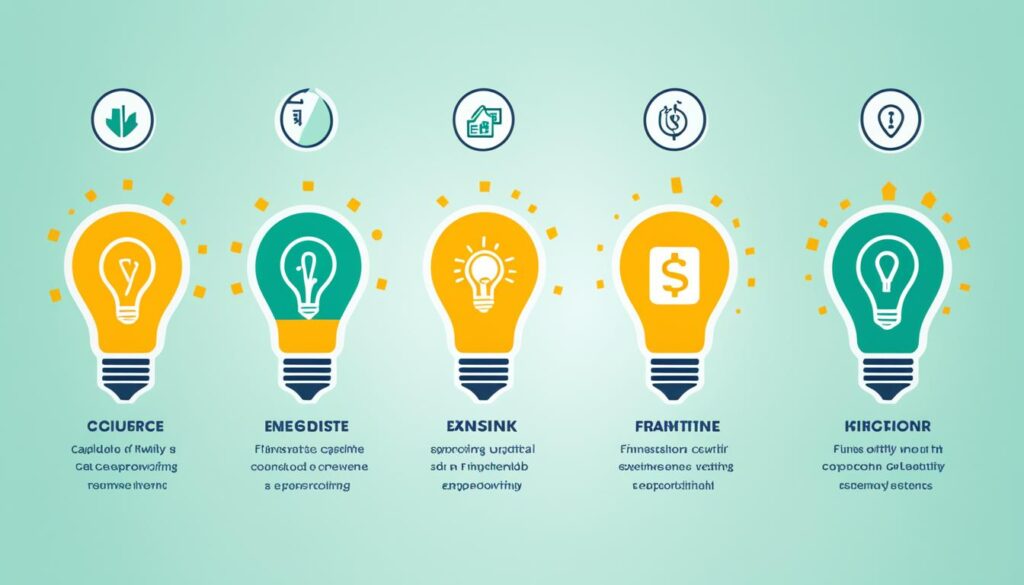In the dynamic world of venture capital, the question of “What is the highest position?” is one that often intrigues those aspiring to reach the pinnacles of this industry. The answer may surprise you, as it unveils the critical role played by the individual at the helm of a venture capital firm.
The highest position in venture capital is the Managing General Partner or Managing Director. These seasoned professionals are the top decision-makers and firm representatives, overseeing all investments and operations at the VC firm. They often own a larger share of the firm’s economics and have the most control over the firm’s governance and strategic decisions.
While some smaller VC firms may have co-equal managing partners, in most larger firms, there is a clear hierarchy with the Managing General Partner at the top. This senior-level role is typically reached after significant experience as a venture capital principal, partner, or other senior executive at the firm or in the startup/investing world.
Key Takeaways
- The highest position in venture capital is the Managing General Partner or Managing Director.
- They are the top decision-makers and firm representatives, overseeing all investments and operations.
- They often own a larger share of the firm’s economics and have the most control over governance and strategy.
- This senior-level role is typically reached after significant experience in venture capital or the startup/investing world.
- Smaller VC firms may have co-equal managing partners, but larger firms usually have a clear hierarchy with the Managing General Partner at the top.
Understanding Venture Capital
Venture capital firms play a crucial role in fueling the growth of innovative, high-potential startups. These firms raise capital from Limited Partners, such as pension funds, endowments, and family offices, and then invest this capital in early-stage companies in exchange for equity ownership. The primary venture capital firm responsibilities include identifying promising startups, providing strategic guidance and resources, and eventually generating returns for their investors through successful exits, such as acquisitions or initial public offerings (IPOs).
What Do Venture Capitalists Do?
Venture capitalists are responsible for evaluating a vast number of investment opportunities, selecting the most promising startups, and actively supporting their portfolio companies. They leverage their expertise, networks, and resources to help these young businesses scale and achieve rapid growth. This involves tasks like sourcing and executing deals, providing portfolio company support, building strategic networks and brand, and managing fundraising and LP relations.
Why Venture Capital?
For early-stage startups, venture capital is often the lifeblood that enables them to transform their innovative ideas into thriving businesses. Venture capitalists not only provide the necessary funding but also offer invaluable guidance, industry connections, and operational support. By partnering with venture capital firms, entrepreneurs can access the resources and expertise they need to navigate the challenges of rapid growth and achieve their ambitious goals.

Hierarchy in Venture Capital Firms
The venture capital industry has a well-defined hierarchy, with various roles and responsibilities at each level. Understanding this hierarchy is crucial for those interested in pursuing a venture capital career path or navigating the venture capital job titles and hierarchy.
Venture Capital Analyst
At the entry-level, venture capital analysts are responsible for conducting research, financial analysis, and due diligence on potential investments. They support the more senior members of the investment team in evaluating opportunities and making informed decisions.
Venture Capital Associate
Venture capital associates typically have more experience than analysts, often with a few years of prior experience in investment banking, consulting, or a similar field. They take on a more active role in the investment process, participating in deal sourcing, valuation, and portfolio company management.
Venture Capital Principal or VP
Venture capital principals or vice presidents are senior-level professionals with a significant track record of successful investments. They lead the deal execution process, manage relationships with portfolio companies, and help shape the firm’s investment strategy.
Venture Capital Partner or Junior Partner
Venture capital partners or junior partners are the most experienced investment professionals within the firm, typically with a proven ability to identify and nurture high-potential startups. They play a crucial role in the firm’s decision-making and are often involved in fundraising from limited partners (LPs).
Venture Capital General Partner or Managing Director
The venture capital general partner or managing director is the highest-ranking individual at the firm. As the top decision-maker, they oversee all investment and operational decisions, provide strategic guidance, and represent the firm in the broader venture capital ecosystem.

Responsibilities and Roles
Venture capitalists, whose primary responsibilities revolve around [venture capital job responsibilities] and [what do venture capitalists do], dedicate their time to various critical tasks that drive the success of their firms and portfolio companies. From sourcing and executing deals to supporting their investments and fostering industry connections, venture capitalists play a multifaceted role in the dynamic world of startup financing.
Sourcing and Deal Execution
At the heart of a venture capitalist’s work lies the identification and evaluation of promising investment opportunities. They actively source deals by networking with founders, attending industry events, and scouring their expansive contact lists to uncover the next big thing. Once a potential investment is identified, venture capitalists meticulously execute the deal, conducting thorough due diligence, negotiating terms, and structuring the investment to maximize value for their firm and the portfolio company.
Portfolio Company Support
Venture capitalists don’t simply provide funding; they also actively engage with their portfolio companies to drive growth and success. They offer strategic guidance, leveraging their industry expertise and extensive network to connect founders with valuable resources, talent, and opportunities. Venture capitalists work closely with their portfolio companies, providing hands-on support in areas such as business strategy, operational optimization, and even talent acquisition.
Networking and Brand-Building
Successful venture capitalists understand the importance of cultivating a strong industry presence and personal brand. They dedicate significant time to networking with industry peers, entrepreneurs, and other key stakeholders, building relationships that can unlock new investment opportunities and support the growth of their portfolio companies. Additionally, venture capitalists actively build their firm’s brand, participating in conferences, hosting events, and engaging with the media to establish their firm as a trusted and influential player in the venture capital ecosystem.
Fundraising and LP Relations
To sustain their investment activities, venture capitalists must continuously raise capital from Limited Partners (LPs), such as institutional investors and high-net-worth individuals. This fundraising process requires venture capitalists to effectively communicate their investment thesis, track record, and value proposition to potential LPs. Additionally, they must maintain strong relationships with their existing LPs, providing transparent reporting, delivering consistent returns, and ensuring their firm remains a preferred destination for future capital allocations.

What is the highest position in venture capital?
The highest position in the venture capital industry is the Managing General Partner or Managing Director. This senior-level role is the top decision-maker and firm representative who oversees all investments and operations at the VC firm. Managing General Partners often own a larger share of the firm’s economics and have the most control over the firm’s governance and strategic decisions.
In most larger VC firms, there is a clear hierarchy with the Managing General Partner at the apex. Some smaller firms may have co-equal managing partners, but the Managing General Partner is typically the most influential and experienced leader who has risen through the ranks over many years.
Reaching the coveted Managing General Partner position usually requires significant prior experience as a venture capital principal, partner, or other senior executive at the firm or in the startup/investing world. These seasoned professionals have demonstrated a proven track record of successful investments and portfolio management, as well as exceptional leadership and strategic vision to guide the firm’s overall direction.

The Managing General Partner holds the highest position of power and influence within a venture capital firm, serving as the face of the organization and the ultimate decision-maker on all key matters. This critical role is essential for driving the firm’s success and delivering strong returns for its limited partners.
Compensation in Venture Capital
Compensation in venture capital consists of base salaries, year-end bonuses, and carried interest (or “carry”). Venture capital compensation is a crucial factor to consider when pursuing a career in this dynamic industry. Unlike investment banking, private equity, and hedge funds, the venture capital compensation structure tends to be significantly lower in terms of base salaries and bonuses.
Base Salaries and Bonuses
At the junior levels, such as Analysts and Associates, the base salaries in venture capital typically range from $60,000 to $100,000 per year. Year-end bonuses can vary widely, depending on the firm’s performance and the individual’s contributions. However, these bonus amounts are generally lower than those seen in other financial services sectors.
Carried Interest (Carry)
The more significant component of venture capital vc salaries and bonuses comes from carried interest, or “carry.” Carry represents a share of the profits generated from the firm’s successful investments, and it is usually paid out over a long-term horizon. This “get rich slowly” aspect of venture capital compensation can lead to substantial financial rewards down the line, but it requires patience and a long-term perspective.
It’s important to note that carry in venture capital is often “lumpy,” meaning that the payouts may be irregular and unpredictable, unlike the more predictable compensation structures in private equity or hedge funds. This reflects the inherent uncertainty and risk associated with investing in early-stage, high-growth companies.

The Path to Partnership
Becoming a venture capital partner is a coveted goal for many finance and investment professionals. While the path to partnership can vary, there are three main routes that aspiring venture capital partners can take: pre-MBA entry, post-MBA entry, and senior-level entry.
Pre-MBA Entry
The pre-MBA entry path typically involves individuals with a strong academic background, often in finance, economics, or a related field. They may have gained relevant experience through roles such as investment banking, management consulting, or even working directly in the startup ecosystem. These individuals may join a venture capital firm as an analyst or associate and work their way up the ranks, building a track record of successful investments and portfolio company support.
Post-MBA Entry
The post-MBA entry path is a common route for aspiring venture capital partners. Candidates with an MBA, particularly from a top-tier program, may be able to enter the industry at a higher level, such as an associate or senior associate role. These individuals often have prior experience in finance, consulting, or entrepreneurship, which they can leverage to contribute to the venture capital firm’s investment and portfolio management strategies.
Senior Level Entry
The senior-level entry path is less common but can be an attractive option for experienced professionals with a proven track record in the industry. These individuals may have spent several years in venture capital, private equity, or other related fields, and have established a strong network and reputation within the startup ecosystem. They may join a venture capital firm as a principal or partner, bringing their expertise and existing deal flow to the table.
Regardless of the path taken, becoming a venture capital partner requires a combination of specialized skills, industry experience, and a track record of successful investments. The journey is challenging but can be immensely rewarding for those who are able to navigate the competitive landscape and demonstrate their value to the firm and its portfolio companies.

Skills and Experience Required
Venture capital firms seek candidates with a diverse skill set and relevant experience to thrive in this dynamic industry. The skills required for venture capital include a strong passion for working with startups, excellent communication and articulation abilities, deep understanding of market and customer dynamics, solid financial analysis skills, and robust networking capabilities.
Aspiring venture capitalists often come from backgrounds in investment banking, consulting, or successful startup roles, where they have developed the necessary analytical and problem-solving skills. Many also pursue post-MBA positions, leveraging their prior experience in tech, healthcare, or finance to transition into venture capital.
Junior VC roles, such as Analysts, typically involve tasks like number crunching, research, and support work. These positions often serve as stepping stones to roles within portfolio companies, further graduate studies, or even founding new venture capital firms. The experience needed for VC at the junior level includes a keen understanding of financial modeling, market trends, and the ability to effectively support senior investment professionals.
As candidates progress through the venture capital hierarchy, the focus shifts towards sourcing new investment opportunities, conducting thorough due diligence, and providing strategic guidance to portfolio companies. Senior-level roles, such as Partner or General Partner, require extensive industry experience, a proven track record of successful investments, and the ability to lead the firm’s overall investment strategy and operations.

Venture Capital Pros and Cons
Working in the venture capital industry offers both advantages and disadvantages. Understanding these key factors can help entrepreneurs and aspiring venture capitalists make informed decisions about pursuing a career in this dynamic field.
Benefits / Advantages
One of the primary advantages of venture capital is the opportunity to work with innovative, high-growth companies. Venture capitalists have a front-row seat to the latest industry trends and technological advancements, allowing them to identify and invest in promising startups. This exposure can be intellectually stimulating and professionally rewarding.
Additionally, venture capital firms often provide significant resources and expertise to support their portfolio companies, including strategic guidance, operational assistance, and access to valuable networks. This hands-on approach can be highly beneficial for entrepreneurs seeking to scale their businesses.
Another advantage of venture capital is the potential for lucrative financial returns. Successful investments can generate substantial carried interest and equity stakes, which can translate to substantial personal wealth over time. This upside potential is a major draw for many professionals considering a career in this field.
Drawbacks / Disadvantages
Despite the potential rewards, working in venture capital also comes with its fair share of disadvantages and challenges. The fast-paced, high-pressure environment can be demanding, with long hours and intense competition to source and secure the best deals. Venture capitalists must also be comfortable with a high degree of uncertainty and risk, as many of their investments may ultimately fail.
Another potential disadvantage of venture capital is the limited control that investors have over the companies they fund. While venture capitalists can provide guidance and support, the ultimate decision-making power lies with the founders and management team. This can be frustrating for some investors who prefer a more hands-on approach.
Finally, the venture capital industry can be highly subjective and relationship-driven, with personal connections and reputation playing a significant role in deal flow and fundraising. This can make it challenging for newcomers to break into the industry, particularly without a strong professional network or track record of successful investments.

Conclusion
In the dynamic world of venture capital, the pinnacle of the career ladder is the position of Managing General Partner or Managing Director. This senior-level role oversees the firm’s entire investment and operational decisions, wielding significant control over its governance and economics. The path to this coveted position is not an easy one, often requiring years of experience and a proven track record within the industry.
The venture capital landscape is characterized by a power-law distribution of outcomes, where a majority of investments face subpar performance rather than appreciation. This reality, coupled with extended feedback cycles, low signal-to-noise ratios, and backward-looking economics, contributes to the high partner turnover rates observed in the industry. As noted by industry experts, these structural challenges may not diminish anytime soon, underscoring the importance of navigating the venture capital career path with strategic foresight and adaptability.
Aspiring venture capitalists must possess a diverse set of skills, including strong analytical capabilities, excellent communication skills, and a deep understanding of the startup ecosystem. The path to partnership can vary, with pre-MBA, post-MBA, and senior-level entry points all offering unique opportunities. Nonetheless, the ultimate goal remains the same: to ascend to the esteemed position of Managing General Partner or Managing Director, where one can wield significant influence and shape the future of the industry.
